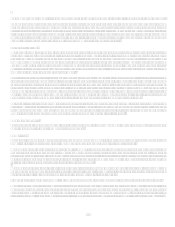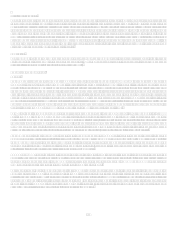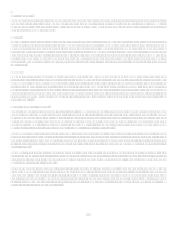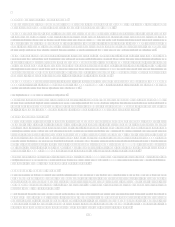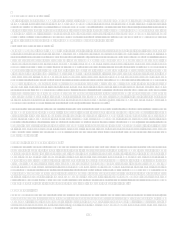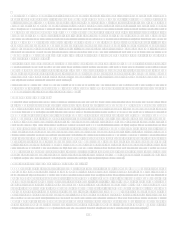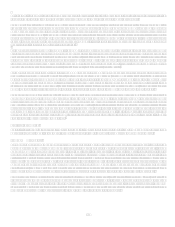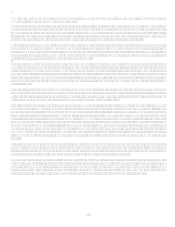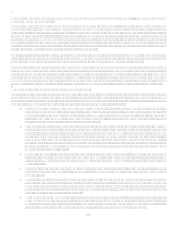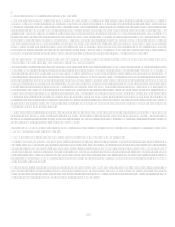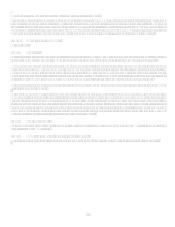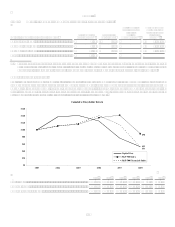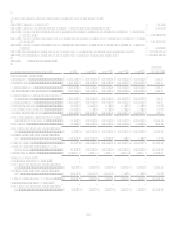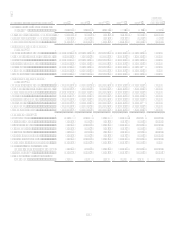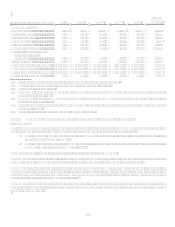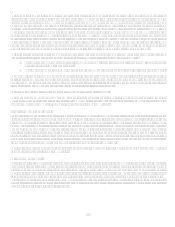Capital One 2008 Annual Report Download - page 38
Download and view the complete annual report
Please find page 38 of the 2008 Capital One annual report below. You can navigate through the pages in the report by either clicking on the pages listed below, or by using the keyword search tool below to find specific information within the annual report. 20
Compliance With New And Existing Laws And Regulations May Increase Our Costs, Limit Our Ability To Pursue Business
Opportunities, And Increase Compliance Challenges
There has been increased legislation and regulation with respect to the financial services industry in recent months, and we expect that
oversight of our business will continue to expand in scope and complexity. A wide array of banking, consumer lending, and deposit
laws apply to almost every aspect of our business. Failure to comply with these laws and regulations could result in financial,
structural and operational penalties, including receivership. In addition, establishing systems and processes to achieve compliance with
these laws and regulations may increase our costs and/or limit our ability to pursue certain business opportunities.
Our participation in the TARP Capital Purchase Program (the CPP) subjects us to increased oversight by the Treasury Department,
regulators and Congress under the Emergency Economic Stabilization Act of 2008 (EESA). Congress may adopt further legislation
to refine EESA in addition to other efforts to change lending practices that legislators believe led to the current economic situation.
Such legislation could increase governmental oversight of the Company, restrict the Companys lending or governance practices, or
both, all of which could negatively impact our business and revenues.
In addition, the Federal Reserve Board recently passed amendments to Regulation AA (Unfair or Deceptive Acts or Practices) and
Regulation Z (Truth in Lending), effective July 1, 2010, which limit or prohibit certain credit card practices and require increased
disclosures for consumers. Although the Company has not engaged in many of the practices prohibited by the amendments, the rules
could have a material adverse effect on future revenues in our U.S. credit card business and could make the card business generally
less resilient in future economic downturns. In particular, the rules will prohibit an increase in the interest rates applied to existing
credit card balances except in limited circumstances. Likewise, several bills pending before Congress could impact credit card pricing
and other terms.
In addition, legislation has been introduced that could enable merchants to negotiate interchange fees, which is the discount on the
payment due from the card-issuing bank to the merchant bank through the interchange network. The future of these bills is uncertain,
but each, or additional legislation, could be introduced or reintroduced in 2009. We face similar risks with respect to our international
businesses, where changing laws and regulations may have an adverse impact on our results.
In April 2008, the Financial Accounting Standards Board (FASB) voted to eliminate Qualifying Special Purpose Entities (QSPEs)
from the guidance in SFAS 140, Accounting for Transfers and Servicing of Financial Assets and Extinguishment of Liabilities. This
change could have a significant impact on the Companys consolidated financial statements because the Company could lose sales
treatment for assets previously sold to a QSPE, as well as for future sales. As of December 31, 2008, the Company had approximately
$45.9 billion of credit card receivables held by QSPEs. If the Company is required to hold more of these assets on its balance sheet,
the Company could be required to comply with increased regulatory capital requirements and such capital may not be available on
terms favorable to the Company, if at all. If the Company were to fail to comply with any additional capital requirements, it could
have a negative impact on our business. Likewise, if the Company is required to hold additional assets on its balance sheet, the
Company may also have to increase its allowance for loan and lease losses to account for potential losses with respect to such assets.
If the Company were to increase its allowance for loan and lease losses, it could have a negative impact on the Companys financial
results.
Finally, in January 2009, broad bankruptcy legislation was introduced in Congress that could be seen as creating incentives for
consumers to choose Chapter 13 bankruptcy as a primary remedy for mortgage related problems. Such legislation, if enacted, could
result in an increase in bankruptcy filings, which could lead to increased credit losses in certain of our other lending businesses, such
as credit cards and auto finance, and could have an overall negative impact on our results of operation.
Laws and regulations, and any interpretations and applications with respect thereto, generally are intended to benefit consumers,
borrowers and depositors, not shareholders. The legislative and regulatory environment is beyond our control, may change rapidly and
unpredictably and may negatively influence our earnings and growth. In addition, some of these new laws and regulations may
increase our costs. Our success depends on our ability to maintain compliance with both existing and new laws and regulations. For a
description of the laws and regulations to which we are subject, please refer to Supervision and Regulation in Item 1.


